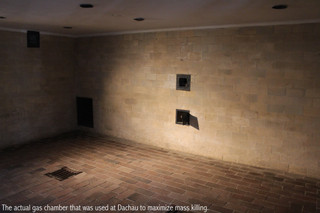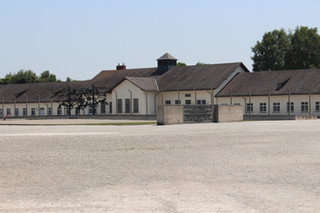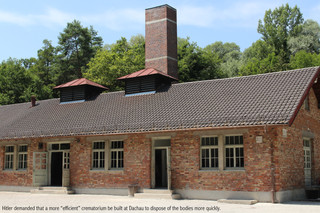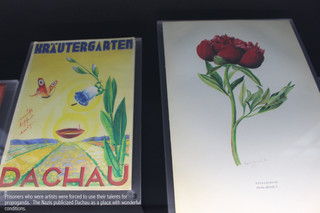Varian Fry - A Name All Should Know
- Lauren Taub Cohen
- Feb 1, 2017
- 4 min read
Sometimes what goes unsaid can be deafening, and the glaring absence of any reference to Jews in the White House's Holocaust Remembrance statement was just that...deafening. A little over 15 years ago, my mother, Catherine Taub, visited the Holocaust Museum in Washington D.C. She serendipitously came across a small exhibit on Varian Fry, who happened to have grown up in my hometown of Ridgewood, NJ. She couldn't ignore what she had read, and she fought tirelessly to get Varian Fry the recognition he was denied.
In 1940, Varian Fry, a Harvard graduate and writer, joined a group of intellectuals (including Thomas Mann and Upton Sinclair) and formed the Emergency Rescue Committee (ERC) in NYC. The ERC created a list of 200 people including Nobel Peace Prize winners, politicians, intellectuals, scientists and artists whose lives were threatened by Hitler's plans. Varian volunteered to go overseas and do what he could to save as many individuals from that list as he possibly could. He arrived in Marseilles, France with only $3,000 in his pocket and was startled by what he saw. He quickly altered the group's mission and sought to save anyone and everyone he could from persecution. The American Consulate and French government were unwilling to assist Fry in his efforts so he was forced to forge his own path. He set up a small office in Marseille and began to establish a network of people who were willing to help. Varian, along with a small group of colleagues, forged documents, planned escape routes and provided financial assistance to refugees. Unfortunately, the US State Department and Vichy France were angered by his covert activities, and he was expelled from France in 1941. However, in that short span of time, he was responsible for having saved more than 2,000 people including Hannah Arendt, Marc Chagall, Max Ernst, Jacques Lipchitz, Andre Breton, Marcel Duchamp, Heinrich Mann and less famous people like my mother's friend, Jeanette Berman.
When Varian Fry returned home to New York City, he was not met with a hero's welcome. He was shunned, had his passport rescinded and faced further retribution for trying to draw attention to the what was actually happening to Jews and other enemies of the Third Reich. In 1942, the US government began to censor Fry's mail. They went a step further by opening up an FBI file on him and branded him a communist.
There's a reason why most people in the US don't know about Varian Fry, and my mother recognized this immediately. His heroic efforts and accomplishments were silenced by the wave of anti-semitism here at home which led FDR to deny the St. Louis entry into the United States. I remember my mom speaking to a crowd and saying that if our country wanted to celebrate Varian Fry, then we would have to come face-to-face the dark truth that our country's silence enabled Hitler. It wasn't until the bombing of Pearl Harbor that the United States joined the war and yet Varian Fry was writing articles about Hitler's extermination plans as early as 1935.
When Varian was asked about what he did, he replied by saying, "I stayed because the refugees needed me. But it took courage, and courage is a quality that I hadn't previously been sure I possessed." In 1996, Varian Fry became the first American to receive the honor of "Righteous Among Nations" from Israel, and he is also celebrated as a hero in France. There is even a plaque outside his office in Marseille to commemorate his heroism.
What we need now is the type of courage Varian Fry possessed back then. We need courageous institutions, companies, communities, politicians, and individuals to stand up to injustice. Eli Wiesel in his 1986 Nobel Peace Prize speech said, "We must take sides. Neutrality helps the oppressor, never the victim. Silence encourages the tormentor, never the tormented. Sometimes we must interfere. When human lives are endangered, when human dignity is in jeopardy, national borders and sensitivities become irrelevant. Wherever men and women are persecuted because of their race, religion, or political views, that place must - at the moment - become the center of the universe."
At times it can feel like little can be done, but Eli Wiesel had an antidote to that festering sense of helplessness. He said, "There may be times when we are powerless to prevent injustice, but there must never be a time when we fail to protest." Perhaps, the call to protest is just one of many ways we can actively observe Holocaust Remembrance Day on all days, not just its assigned day of the year. We can speak out in remembrance of the Holocausts's victims who died two deaths. First, by silence and then by gas, bullets or other horrific means.
6 million Jews
7 million Soviet civilians (including 1.3 million Soviet Jewish civilians, who are included in the 6 million figure for Jews)
3 million Soviet prisoners of war (including about 50,000 Jewish solders)
1.8 million Non-Jewish Polish civilians
312,000 Serb civilians
250,000 people with disabilities
196,000 to 220,000 Roma (Gypsies)
1,900 Jehovah's Witnesses
70,000 Repeated criminal offenders and so-called socialists
And an unknown number of German political opponents, resistance activists and homosexuals.
(* Numbers taken from United States Holocaust Museum)
If you are interested in learning more about Varian Fry, please check out these references:
Surrender on Demand by Varian Fry
In Defiance of Hitler - The Secret Mission of Varian Fry by Carla Killough McClafferty
A Hero of Our Own by Sheila Isenberg
Villa Air-Bel: World War II, Escape and a House in Marseille by Rosemary Sullivan
Here are some photos from a recent trip to Dachau. You can click on the image to enlarge it.







































Comments